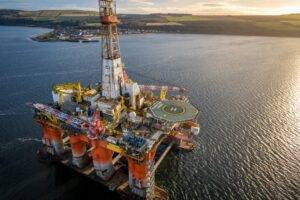The oil and gas industry provides thousands of jobs worldwide, with revenue in 2022 around $332 billion.
By the end of 2022, the oil industry was producing 12.1 million barrels per day (b/d) and the gas industry 121 billion cubic feet per day (bcf/d). However, despite its success, the oil and gas industry also comes with numerous hazards and dangers. Workers in this industry face safety risks on a daily basis. Here are 8 of the major dangers of working in oil and gas.
1. Fire and Explosion Hazards
Oil and gas sites contain extremely flammable materials including petroleum products, gases like methane, and various chemicals. A small spark can cause a massive explosion and fire. Between extraction, transportation, refining, and storage, there are risks of fires and explosions at all stages—the BP Texas City refinery explosion killed 15 workers and injured 180 more.
Proper safety procedures and equipment must be followed to prevent such disasters. Fires can rapidly spread and engulf entire facilities if not contained quickly.
2. Toxic Chemical Exposures
From drilling fluids to fracking chemicals, oil and gas workers come in contact with many hazardous substances. Exposure can cause serious health effects like skin/eye irritation, breathing problems, organ damage, cancer, and more. Proper protective equipment and safe handling procedures are crucial. Chemical exposures can have both acute and chronic impacts on health depending on toxicity and extent of contact.
3. Confined Space Hazards
Tanks, pits, silos, and other enclosed areas in oil and gas worksites are considered dangerous confined spaces. Hazards include oxygen deficiency, toxic air contaminants, explosions, and entrapment/engulfment. Special training and precautions are required for confined space entry. Air monitoring, ventilation, and emergency rescue plans are vital for confined space work.
4. Heavy Machinery Accidents
Oil and gas production involves all kinds of heavy machinery and vehicles like drill rigs, excavators, trucks, loaders, etc. Being struck by or caught in such equipment can cause serious traumatic injuries and death. Proper training, maintenance, and vigilance are essential in preventing accidents. Workers must be aware of equipment blind spots and proper protocols for machine operation near personnel.
5. Falls at Height
Workers often perform tasks at height on rigs, platforms, towers, tanks, etc. Falls from elevated surfaces can result in grave or fatal injuries. Use of fall protection systems and harnesses can help reduce this risk. Guardrails, safety nets, and strict procedures for working at heights must be implemented. An Oilfield accident lawyer is there to help if you are injured in a fall at an oilfield.
6. Noise Exposure
The machinery and equipment used in oil and gas extraction produce loud noise on worksites. Prolonged exposure can cause hearing loss and additional health effects over time. Hearing protection like earplugs must be worn to prevent such damage. Baseline and annual hearing tests help monitor any impacts from noise.
7. Remote Location Risks
Many oil and gas operations take place offshore or in remote onshore regions far from hospitals and emergency services. This makes medical care difficult if accidents occur.
8. Fatigue from Long Hours
The nature of oil and gas operations often demands extra long shifts and weeks of non-stop work. Fatigue reduces focus and increases errors leading to accidents and injuries.
The oil and gas industry provides many hazards that require stringent safety measures and training. With proper precautions and safe work practices, the inherent dangers can be significantly reduced and controlled. However, risks can never be fully eliminated in this line of work. Continual improvement in technology, procedures, and safety culture is key.
Read more:
8 Dangers of Working in the Oil and Gas Industry
























